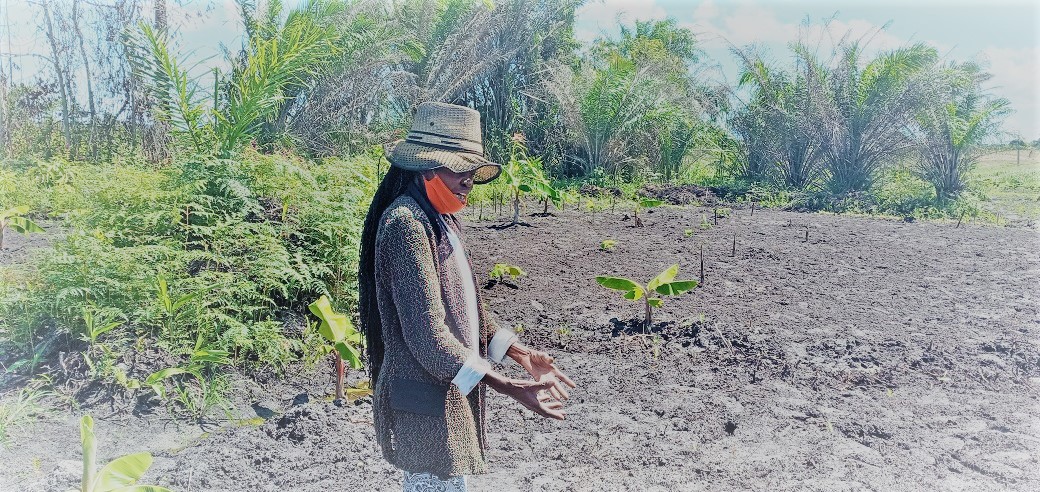Civil Society Declaration Finance in Common Summit 2023

The Global Forest Coalition joined members and allies at the Finance in Common Summit from 4 to 6 September in Cartagena de las Indias, Colombia. One of the core outcomes of the summit was the Civil Society Declaration, which can be shared with policymakers, the UN and leaders at the national, regional and global levels.
Amongst other interventions, GFC’s Unsustainable Livestock and Agriculture Campaign Coordinator Andrea Echeverri led a workshop on “Supporting a just transition and just resilience: emerging approaches and partnerships.”
The central themes of this year’s summit included Climate and Biodiversity, Sustainable Infrastructure, PDB Institutional Agenda, Small and Medium Enterprises, and Financial Inclusion. Cross-cutting themes encompass Social Integration and Development Impact, mobilization of private capital for SDGs, collaboration with civil society, integration of human rights, and regional perspectives of Latin America and the Caribbean.
Civil society main messages at FICS 2023:
Human Rights: Public Development Banks (PDBs) must ensure active community participation, prioritizing local needs and inclusivity, while preventing reprisals against those who speak out against funded projects. An emphasis on human rights, accountability, and transparency should guide their approach, focusing on safeguarding rights, evaluating impacts, and providing effective remedies for harm. Equitable access to social services must also be upheld, with PDBs prioritizing their strengthening and responsibly engaging the private sector to protect essential services and human rights.
Civic Space / Strengthening CSO-PDB Relations: Encouraging multi-stakeholder collaboration is imperative for addressing pressing global challenges, including climate change, poverty, and inequality. Recognizing civil society as an official engagement group within the Finance in Common Initiative is pivotal, extending to all stages of the initiative’s processes. To fortify strategy, accountability, and transparency of projects, a formal connection between civil society organizations and PDBs at both HQ and country levels is essential. This partnership should span the project cycle to ensure inclusive participation and advancement of public goods and human rights. Transparency and reporting standards of PDBs must improve to foster an enabling environment for civil society, emphasizing civic space, human rights, and gender considerations.
Financing for Development: Promoting impact investing and sustainable finance practices aligns with the urgency to achieve long-term transformative outcomes in social and environmental domains. Supporting and involving local communities in decision-making, policy discussions, and project design can yield contextually relevant and sustainable solutions. Additionally, the focus should be on a pro-poor sustainable development agenda that prioritizes equality, resource allocation, and infrastructure development, particularly in underserved areas. Promoting resilience through strategic long-term plans and collaborative efforts while avoiding duplication of efforts is essential to drive meaningful change in development policies.
Climate Justice and Biodiversity: Addressing climate change is a matter of justice, requiring high-income countries and institutions with historical responsibility to provide grant finance for low- and middle-income countries burdened by climate consequences. PDBs must align their financing with the SDGs, Paris Agreement, and Global Biodiversity Framework, transitioning to sustainable societies and economies while avoiding harmful projects. To avoid ecological degradation and human rights violations, PDBs must cease financing carbon-intensive ventures, fossil fuels, and gas expansion, and support renewable energy projects without replicating extractive models. Equally vital is the shift from intensive livestock production to sustainable food systems. PDBs must prevent unjust debt burdens on climate-vulnerable countries and focus on meaningful solutions, avoiding ineffective financial mechanisms. Climate finance assessments should be detailed and transparent. To combat biodiversity loss, PDBs should halt and reverse it as a core mandate, recognizing the connection between climate and biodiversity challenges and prioritizing Indigenous Peoples’ rights as crucial stewards of biodiversity.
About the Finance in Common Summit:
The Finance in Common Summit brings together over 400 public development banks from around the world, including renowned institutions such as the World Bank, the Asia Development Bank, and the African Development Bank. These public development banks (PDBs) are instrumental in channeling public resources to both public and private sectors. Hosted by the French Development Agency (AFD), the FICS secretariat has been coordinating this annual summit since its inception in 2020.











